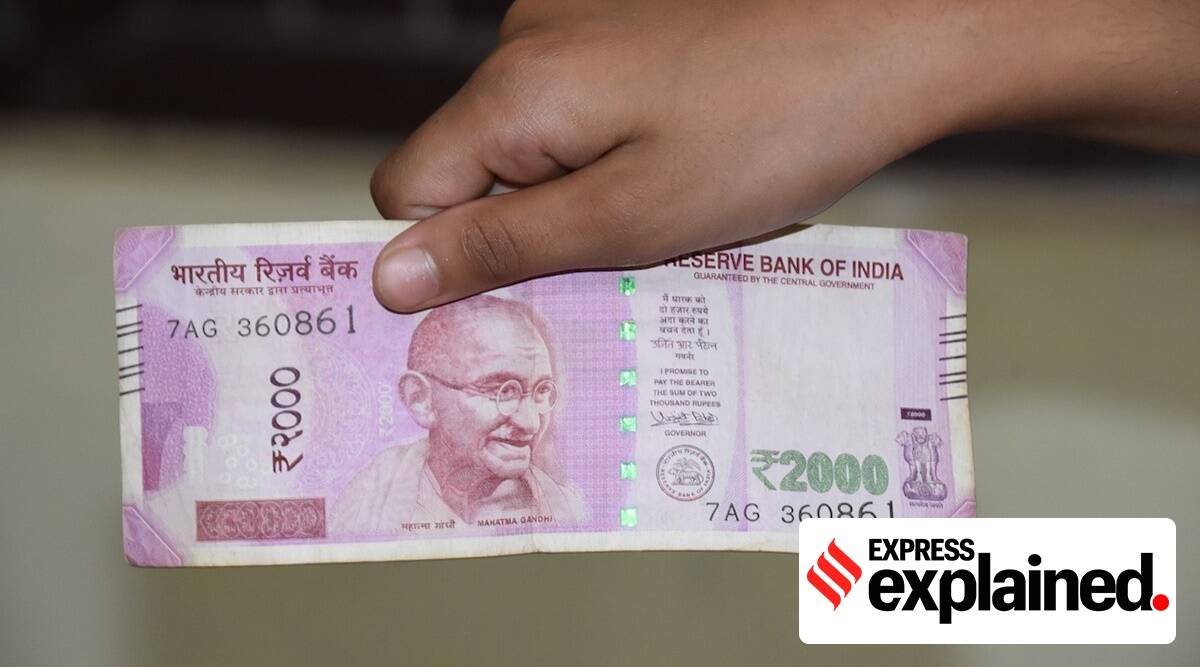
By K Raveendran
The abrupt announcement by RBI, withdrawing all Rs 2,000 notes from circulation, seems to have much more than what meets the eye. Going by the explanations provided so far, it is increasingly clear that there is plenty of room for the regulator to be more forthcoming on the decision.
The RBI is taking special care to clarify that it is not demonetisation, but only withdrawal of the currency as the purpose for which the notes were introduced has been fulfilled. In fact, it has told the Delhi High Court, which is considering a petition challenging the decision, that the withdrawal of notes from circulation is a statutory exercise and not demonetisation. Governor Shaktikanta Das insists that the Rs 2,000 notes have completed their cycle and age, and their withdrawal is part of the currency management operation as the notes were introduced primarily to replenish the notes withdrawn following demonetisation in 2016.
The clean notes policy aims at providing clean and unsoiled notes to the public and involves the withdrawal of certain existing series and replacing them with new series. Under this policy, notes of every denomination are withdrawn from circulation and replaced by new series in the respective denomination. And this happens quite routinely, without any fuss being created. But in the case of Rs 2000 notes, it is not the same thing. The denomination itself has been cancelled, which is a rare occurrence. And that is what makes it different, and somewhat suspicious.
Already apprehensions have been expressed that the time granted for exchange of the currency with lower denomination notes will help people with black money regularise their holdings as no questions are asked nor is there any need for making any declaration. The clarification by the authorities that the exchange does not require even the production of an ID or filling of forms make the process completely non-transparent, giving black money holders a golden opportunity. There are hundreds of ways in which an enterprising black money holder, with most people in this category being highly ingenious and imaginative, can beat the system, if at all there is one in the RBI scheme. For all one knows, the exclusion may not be a coincidence, but the offshoot of political intervention. And it is such possibility that makes the opposition parties cry hoarse.
It is similar to the window provided by the Modi government’s electoral bonds scheme, which despite its honourable objective of promoting transparency in funding of elections, has ended up filling up the ruling party’s coffers with money that may have been acquired through means other than fair and square. In fact, the new electoral bond regime has ended up being nothing short of a scam. Worse still, the timing is ominous.
It has been repeated pointed out that the electoral bonds have some inherently anti-democratic characters. Their key feature of anonymity enables a system where people do not know who are contributing money to the political parties. A combination of laws regarding election finance combined with the electoral bond scheme has already taken India’s journey towards a stronger, more accountable democracy back by a sizeable stretch.
The related notification states that the information provided to the bank by those who purchase the bonds shall be kept confidential by the bank and the details shall not be released for any purposes except when demanded by a competent court or upon registration of criminal case by any law enforcement agency. The anonymity for the electoral bonds is also protected by the Representation of Peoples Act. While Section 29C (b) states that the treasurer of a political party shall report any contribution in excess of twenty thousand rupees received by such political party from companies other than government companies in that financial year, the same proviso also states that the report does not have to contain details of contributions that have been made via the electoral bonds scheme.
It’s no wonder then that the scheme has helped the ruling BJP corner the lion share of proceeds from the electoral bonds, almost to the exclusion of other parties. According to the Election Commission data, the BJP received more than half of all electoral bonds bought between March 2018 and 2022. While BJP received Rs 5,270 crore out of a total of Rs 9,208 crore or 57 per cent of all total electoral bonds sold till 2022, the opposition Congress party came a distant second, receiving Rs 964 crore or 10 per cent in the same period, while West Bengal’s ruling Trinamool Congress got Rs 767 crore or 8 per cent of all electoral bonds. (IPA Service)
The post RBI Needs To Be More Forthcoming On Withdrawal Of Rs 2000 Notes first appeared on IPA Newspack.


